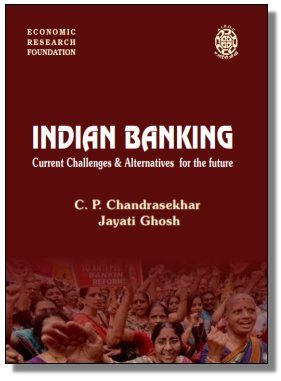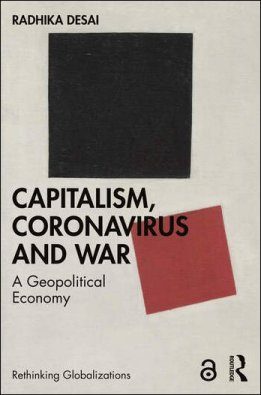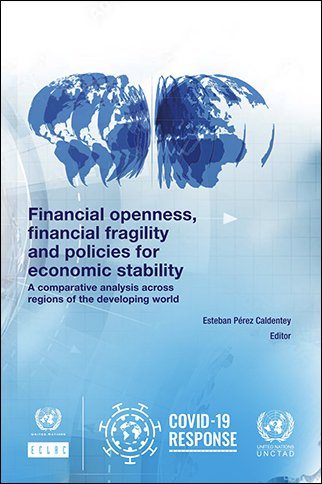Publisher: Third World Network Year: 2023 No. of pages: 42 Download now About the Book…
Indian Banking: Current challenges & alternatives for the future C.P. Chandrasekhar and Jayati Ghosh

Published by : AIBOC
About the Book
Indian banking today is at a tipping point. Banks are burdened with non-performing assets, incurring significant losses due to provisioning and unable to sustain credit growth, and therefore changes are both necessary and inevitable. There are possible strategies with very different implications: many leading banks could be restructured with state support and encouraged to regain the status they had as major instruments of development policy in the two decades after nationalization; or they could be allowed to weaken further, only to be swallowed up by large domestic and private players at bargain prices. The second option would take the sector back to the pre-1969 years when banks were instruments of private aggrandizement rather than of social advance, so it is not even the beginning of an alternative. This report suggests that the first option is the necessary and desirable strategy, and further that it needs to be accompanied by other measures that would correct the damage wrought by misguided policies over the last two and a half decades, as well as place Indian banks on a footing that enable them to play a leading role in a larger transformation of both economic policy and the nation’s development path.
About the Authors
C. P. Chandrasekhar, is Professor at the Centre for Economic Studies and Planning,School of Social Sciences, Jawaharlal Nehru University, New Delhi. Besides being engaged in teaching and research for more than three decades at JNU, he has served as Visiting Senior Lecturer, School of Oriental and African Studies, University of London and Executive Editor of Deccan Herald Group of Publications in Bangalore. He was a member of the Independent Commission on Banking and Financial Policies constituted by AIBOC in 2004 and released in 2006. He has published widely in academic journals and his most recent book titled “Karl Marx’s Capital and the Present” was published in 2017. He has also co-authored many books, including, “India in an Era of Liberalization”; “Crisis as Conquest: Learning from East Asia”; “The Market that failed: A decade of Neo-Liberal economic Reforms in India”; and “Promoting ICT for Human Development in Asia: India”. He is a regular columnist for Frontline and Business Line brought out by The Hindu group of newspapers and a contributor to the H.T. Parekh Finance Column in the Economic and Political Weekly.
Jayati Ghosh is Professor of Economics at the Centre for Economic Studies and Planning, School of Social Sciences, Jawaharlal Nehru University, New Delhi. She has authored and edited a dozen books and more than 180 scholarly articles. Recent books include Demonetisation Decoded: A critique of India’s monetary experiment (with CP Chandrasekhar and Prabhat Patnaik, Routledge 2017), the Elgar Handbook of Alternative Theories of Economic Development (co-edited with Erik Reinert and Rainer Kattel, Edward Elgar 2016) and the edited volume India and the International Economy, (Oxford University Press 2015). Her research output has been recognised through several prizes in India and abroad. She has advised several governments and consulted by many National and International organisations. She is a regular columnist for Frontline and Businessline, and also writes occasionally for the Triple Crisis Blog, The Guardian newspaper and The Indian Express and other outlets. She has been closely involved in working with progressive organisations and social movements.
CONTENT
Foreword
- Introduction
- From Independence to neo-liberal reform: The evolution of Indian banking
- Changes in banking policy and bank performance since the 1990s
- Bank credit and growth of economic activity
- Dealing with NPAs
- The failure of financial inclusion
- Demonetisation and the role of the Reserve Bank of India
- Defining the Challenge
- Reforming personnel management practices
- The way forward
References
Download the book : Indian_Banking



